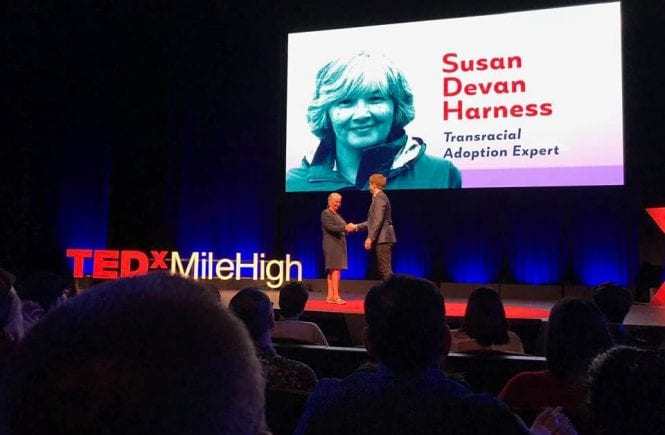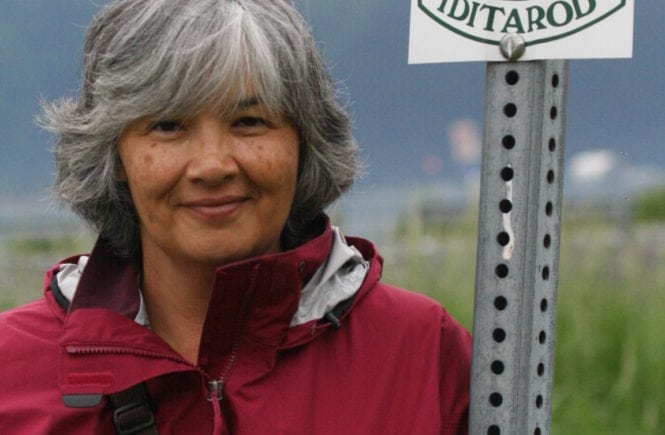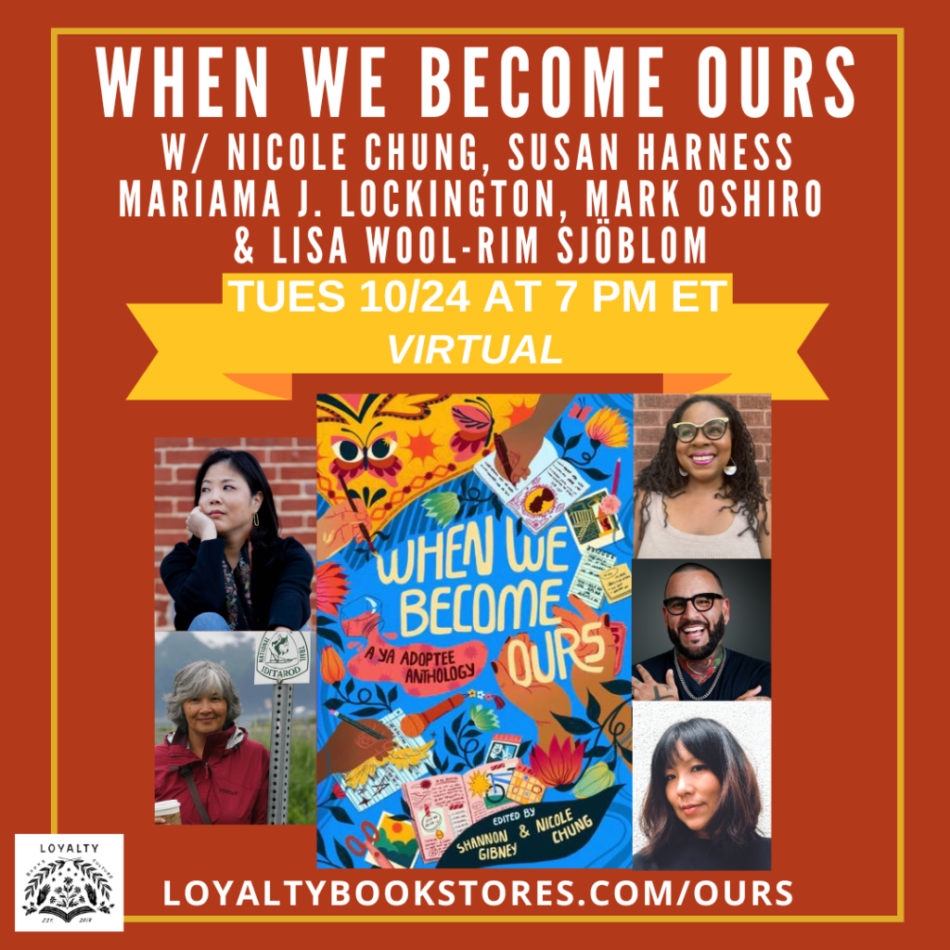Susan Devan Harness is an American Indian transracial adoptee. This identity is unique in that it is situated in a very specific time and place in American Indian history. Unlike other transracial/transnational adoptions, American Indian children were adopted through colonization and assimilation practices on home soil, creating tensions of race and culture.
Running from 1958 – 1967, the Indian Adoption Project, a handshake between the BIA and the Child Welfare League of America, was a social experiment designed to assess the success of adoption as a way to bring American Indian children “into the mainstream.” Some adoptions were successful to the children, but many were disastrous.
William Byler, in hearings before the Subcommittee on Indian Affairs in 1972, estimated that nearly 30 percent of American Indian children had been removed from reservation families and placed into Euro-American homes. Most of the psychological research indicates this type of adoption created very specific psychological problems for the adoptees and indicated it resulted from a loss of culture, heritage and families.
Harness’s research takes this a step further: She wanted to know what structures were in society that created the meanings of losing culture, heritage and family. Her cultural anthropological study revealed structures of group belonging, social hierarchy, social capital accumulation and exchange as well as social memories all created barriers to being accepted or being denied by societies. She interviewed 50 people to obtain information of what it means to be Indian, but raised white. Last year, this research was published by the scholarly publishing house, Edwin Mellen Press, titled “Mixing Cultural Identities Through Transracial Adoption: Outcomes of the Indian Adoption Project” (1958-1967).
Although the Indian Child Welfare Act has significantly reduced these types of child placement, transracial adoptions in general are increasing. Therefore it’s important for child placement professionals, psychologists, prospective parents and adoptees to understand the social implications of these unique adoptions, their history and their context within society. It’s time to have a dialogue that goes beyond how we’d like adoption to be and focus on how it is for adoptees.
If you’re interested in reviewing the book, she can provide you information for a copy. Or, if you’re interested in conducting an interview, please feel free to contact me at the information provided below. I really want to get the information out so other adoptees and those involved in adoption can fully appreciate the identity negotiations we are required to make to find a place to belong.
I would be interested in a 700 – 800 word story on the author accompanied by a book review for the sidebar. Photo would be a plus. To be turned in when the book review is ready.
Susan Harness, M.A., Field Director, Tri-Ethnic Center for Prevention Research
100A Sage Hall, Colorado State University, Fort Collins, CO 80523-1879
susan.harness@colostate.edu
(970) 491-2110; (800) 835-8091



